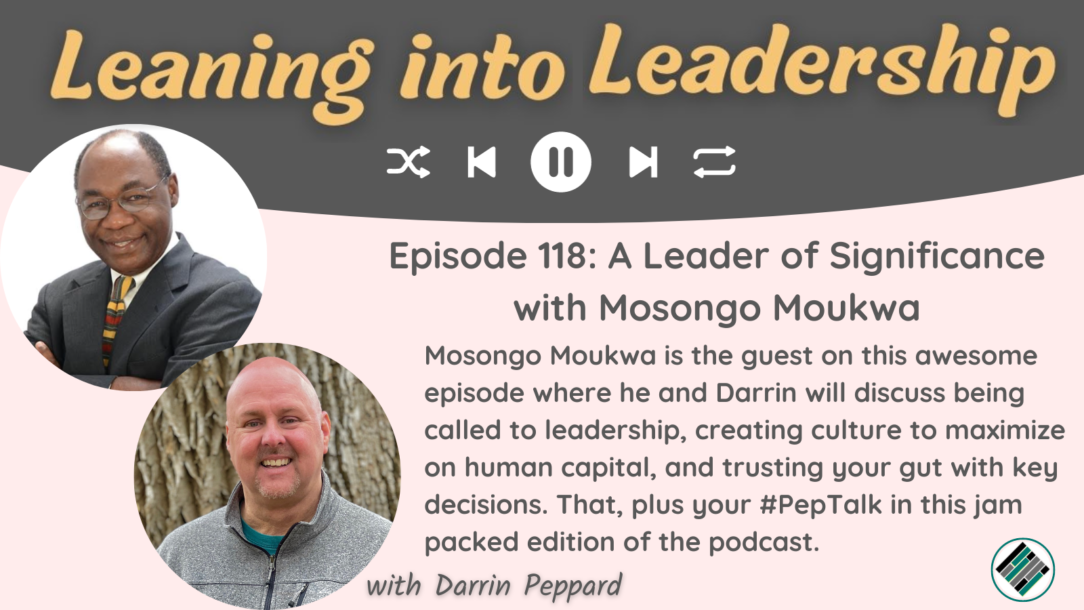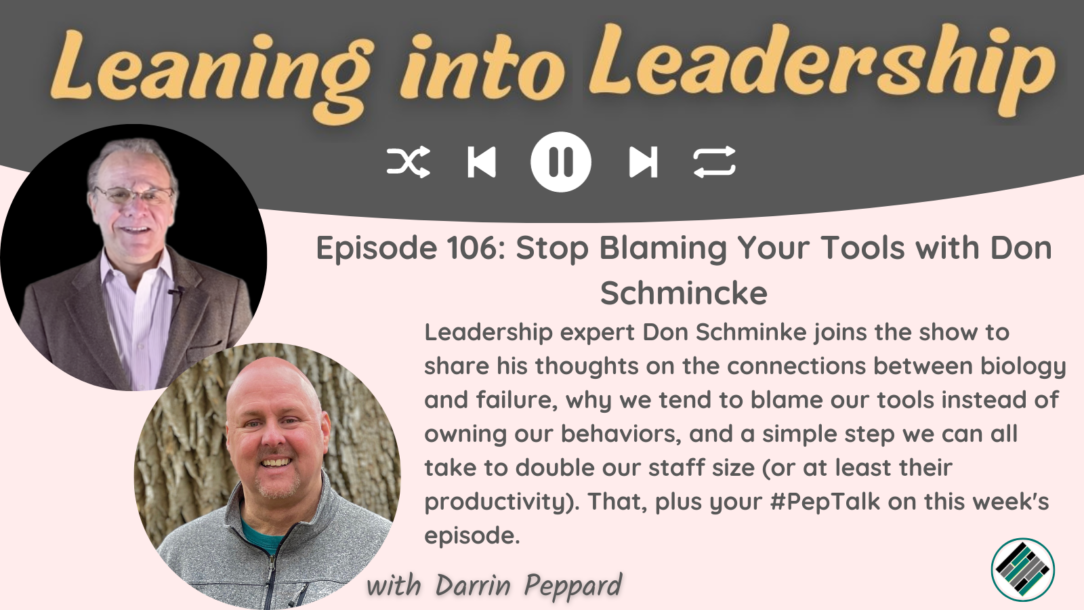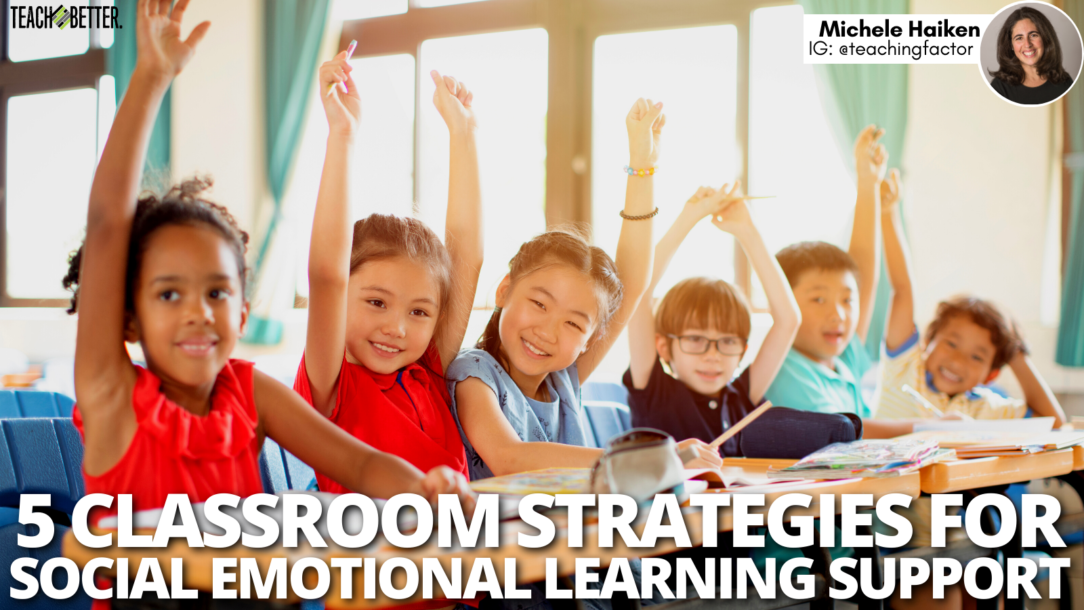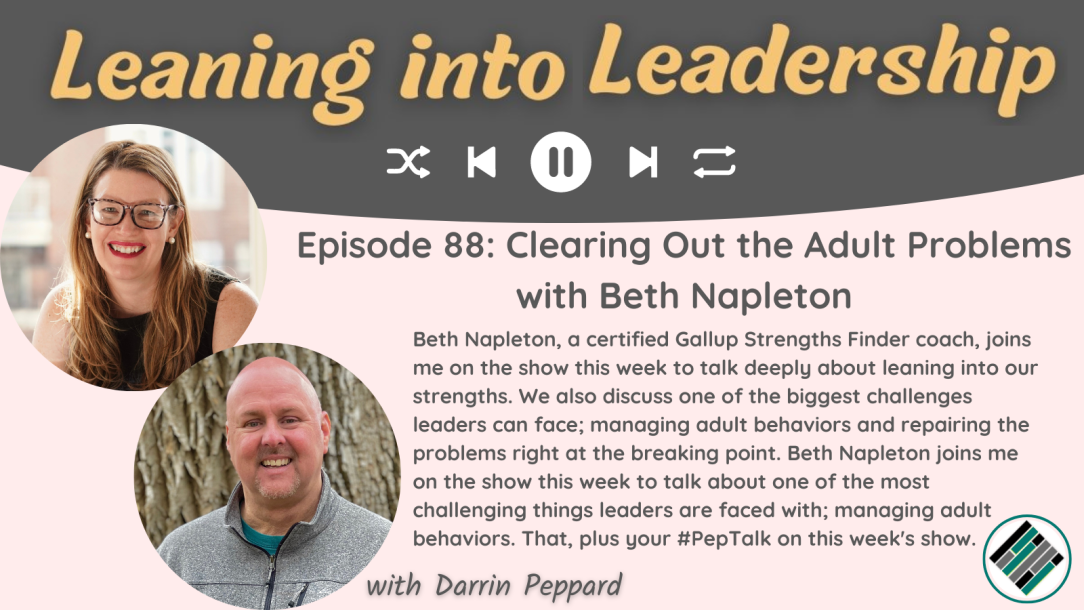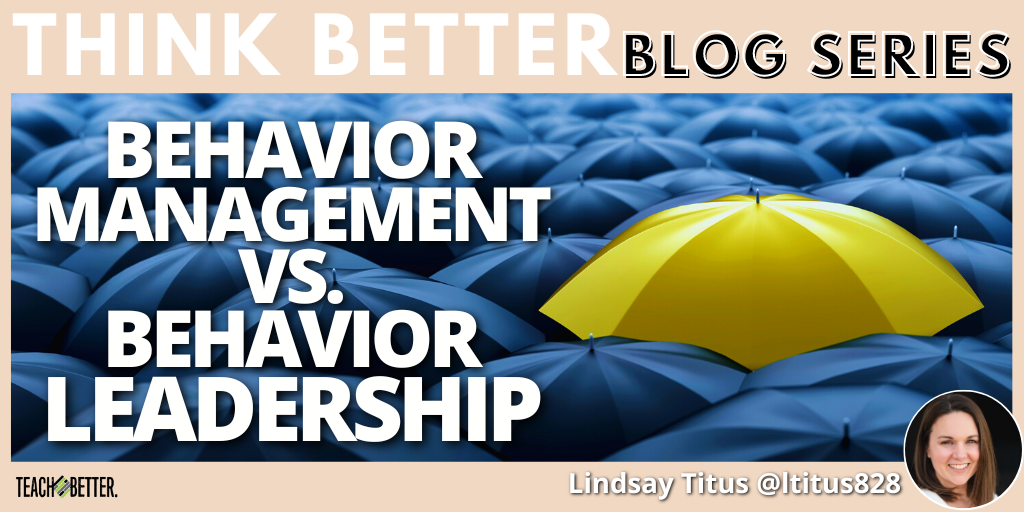Mosongo Moukwa is the guest on this awesome episode where he and Darrin will discuss being called to leadership, creating culture to maximize on human capital, and trusting your gut with key decisions. That, plus your #PepTalk in this jam packed edition of the podcast. MORE EPISODES
Episode 106: Stop Blaming Your Tools with Don Schmincke
Leadership expert Don Schminke joins the show to share his thoughts on the connections between biology and failure, why we tend to blame our tools instead of owning our behaviors, and a simple step we can all take to double our staff size (or at least their productivity). That, plus your #PepTalk on this week’s episode. MORE EPISODES
5 Classroom Strategies for Social Emotional Learning Support
TL;DR: Social emotional learning is already integrated into everyday teaching, helping students develop essential life skills alongside academic knowledge. Teachers can enhance SEL by implementing intentional strategies, such as reflection for self-awareness, authentic assessments for social awareness, choice boards for responsible decision making, checklists for self-management, and promoting collaboration and cooperation for building relationship skills. These practices align with CASEL’s … Read More
Episode 88: Clearing Out the Adult Problems with Beth Napleton
Beth Napleton, a certified Gallup Strengths Finder coach, joins me on the show this week to talk deeply about leaning into our strengths. We also discuss one of the biggest challenges leaders can face; managing adult behaviors and repairing the problems right at the breaking point. Beth Napleton joins me on the show this week to talk about one of … Read More
Behavior Management vs. Behavior Leadership
TL;DR: Behavior management is not the ultimate answer to solving all challenges teachers face. Shift your perspective from behavior management to behavior leadership, and emphasize the importance of being a leader who guides behavior change and fosters growth. Language is powerful and changing the way we speak about behavior can have a positive impact on classroom and school environments. For … Read More
- Page 1 of 2
- 1
- 2

